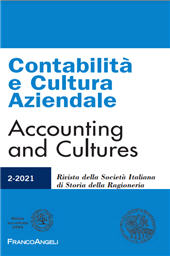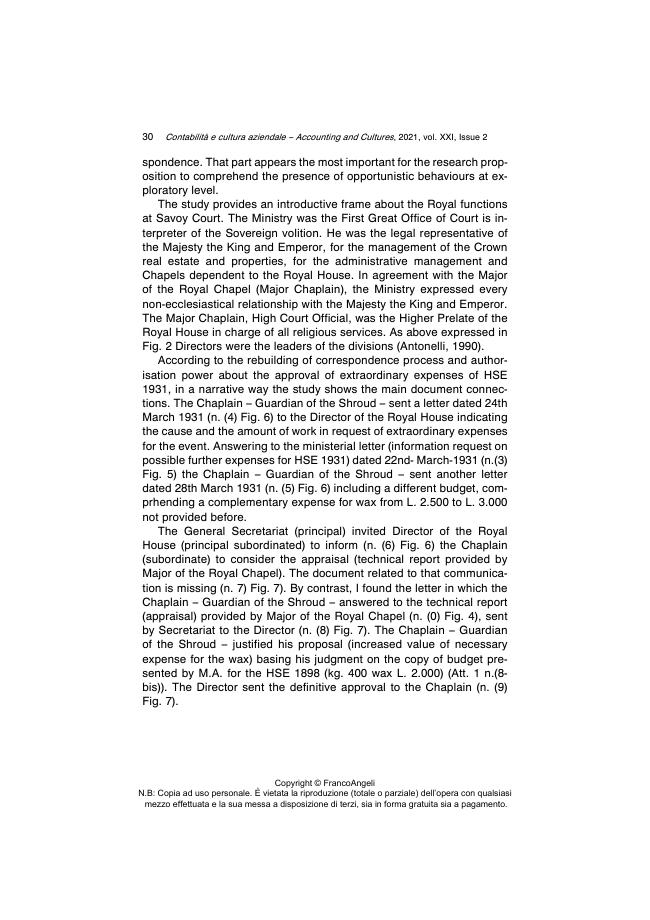Accounting and the budget negotiation process : the case of the Holy Shroud Exposition (1931) during a period of austerity
P. 7-53
Introduction: The paper considers the case of the Holy Shroud Exposition (1931) during a period of austerity, investigating accounting practices and the budget negotiation process. Aim of the work: The study seeks to illustrate the power structure underpinning budgetary negotiation processes related to the Holy Shroud Exposition. Methodological approach: The paper is based upon primary sources, considering internal accounting correspondence of the Savoy Ministry and other archival sources that have been interpreted in the light of the literature on the principal-agent theory used as framing paradigm.
Main findings: The research identifies the role of accounting in managing/influencing social organisational-interactions, under specific historical conditions. In particular, the work shows the hierarchical structure of the Savoy Royal House (hereafter HSE), and verify the presence of opportunistic behaviours in the negotiation process realated to the authorisation of extraordinary expenses for the Holy Shroud Exposition. Originality: The paper permits to show the power of accounting to shape human interactions in the specific context represented by the climate of austerity, typical of interwar periods, that becomes a crucial antecedent of opportunistic behaviours. [Publisher's text]
Ist Teil von
Contabilità e cultura aziendale : rivista della Società Italiana di Storia della Ragioneria : XXI, 2, 2021-
Artikel aus derselben Ausgabe (einzeln erhältlich)
-
Informationen
ISSN: 2283-7337
THEMENBEREICHE
KEYWORDS
- holy shroud, accounting, principal-agent, accounting correspondence, austerity, organisational repercussions



